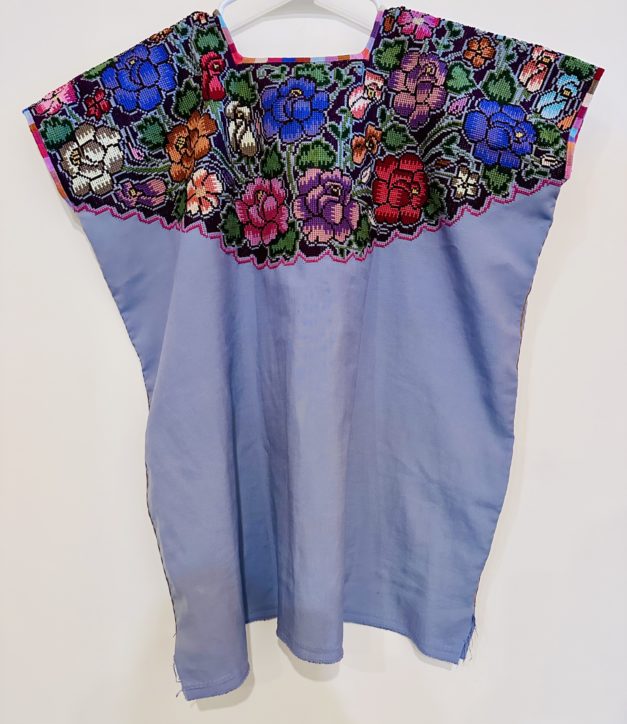By Tuesday after the Santa Fe International Folk Art Market ended, most friends returned home or continued with travels. Market weekend was HOT, over 100 degrees fahrenheit with no rain, unusual for July when afternoon thunderstorms usually cool things off, they say. There’s no air conditioning here, my local friends remind me. Adobe, shade and water are the natural coolants.
 The high New Mexico desert is beautiful, austere, the color of salmon, sand, sage and terra-cotta. Only the cloudless blue sky, jagged mountains and cottonwood banking the rivers give relief to the landscape.
The high New Mexico desert is beautiful, austere, the color of salmon, sand, sage and terra-cotta. Only the cloudless blue sky, jagged mountains and cottonwood banking the rivers give relief to the landscape.
It is big country with expansive mesas and tumbleweed. Still the wild west with scattered oases.
I drive an hour and a half north across Native American pueblo land — Santa Clara, Tesuque, Pojoaque, San Ildefonso — climbing up through a mountain pass along the Rio Grande River Gorge to Taos to visit friends.
Beneath the mountain, under a cloudless sky, I see dust dancing in the distance, a funnel cloud likeness of Kokopelli blowing his flute.
Despite the heat, it is easy to love it here, the mix of silver, turquoise, coral, casinos, fry bread, corn, indigenous pride and creativity, ripe nectarines and peaches — prolific local bounty. This is more than an enclave for opera and art aficionados.
The Taos Pueblo looks much like it did forty years ago when I first visited and felt drawn by the region’s history and her native peoples.
There are a few more tourist shops, but the pueblo is otherwise untouched except by bus loads of visitors who come in early morning to avoid the sun.
It’s not difficult to make the comparison between Mexico and New Mexico both visually and culturally. Spanish is a primary language here, and roots go deep into colonizer oppression and conversion (read about the 1680 Pueblo Revolt).
From history, we know that political boundaries do not define the origins of people (think Maya people of Chiapas, Mexico and Guatemala).
Descendants of Mexican landholders subsumed into U.S. territory in 1853 with the Gadsden Purchase populate Nuevo Mexico.
Many of my New Mexico friends are equally at home in Oaxaca, and it is easy to see why.
Just like Oaxaca, I love the colors and textures here, the traditions of the native people, their art and creativity. The synergy between these two places is strong and as I drive through the country, I have this feeling of peace and deep history.
At this moment, I’m in Huntington Beach, California, with my son Jacob. The ocean breezes bring chill to the air, even though days are warm. It’s great to be back in the land of my growing up and connect with family for more than a few days.





















2 responses to “New Mexico Dry. After the Santa Fe Folk Art Market.”